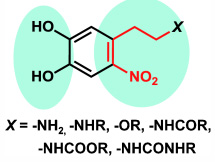Mussels are true masters of adhesion. They bond solidly under water to nearly any type of surface. Researchers from Mainz have been inspired by mussel adhesive proteins to add another exciting property. As they report in the journal Angewandte Chemie, their new adhesive can be debonded on demand.

Glue was previously considered to be a cheap and flimsy solution. However, modern adhesives are very high-tech, for example, they can hold together the aerofoils of airplanes. However, three items persist on the wish lists of adhesion scientists: reliable bonding under water, for fixing leaks in underwater pipelines or sealing bleeding wounds during operations; "self-healing" adhesives that would prevent catastrophic failure; and adhesives that can be debonded "on demand" with no residue, for easy replacement of components or dismantling composites for recycling.
In nature there are astonishingly robust, strongly bonding, universal adhesives that meet the first two requirements: mussels use them to stick to nearly all types of surfaces, from rocks to wooden posts to the metal hulls of ships. The amino acid dihydroxyphenylalanine (DOPA) is critical to this amazing adhesive effect. The DOPA groups contained in the adhesive react stepwise under the conditions prevalent in seawater to form a cross-linked polymer matrix capable of bonding to inorganic oxides in rock. They also bind to polyvalent metal ions, such as iron ions, in seawater, which give the mussel adhesive self-healing properties.
Researchers working with Aránzazu del Campo at the Max Planck Institute for Polymer Research in Mainz have taken inspiration from these mussel adhesives. They produced four-armed, star-shaped polymers with nitrodopamine groups attached to their ends. These groups are related to DOPA and help the adhesive to cross-link under water and give it self-healing properties. It only takes a few minutes for a cut gel sample of this material to grow back together. The nitro groups (-NO2) also provide this mussel-adhesive-inspired material with another bonus: the molecules can be split by irradiation with UV light, so the adhesive can be debonded.
The Mainz team has thus laid the foundation for a class of adhesives that are waterproof, heal themselves, react with surfaces, degrade with light, and are biocompatible. Surfaces coated with this adhesive also provide an excellent substrate for cell cultures. The primary application for this new material may thus be in medicine, possibly as removable hydrogel pads for skin regeneration or as a reversible superglue for repeated operations.